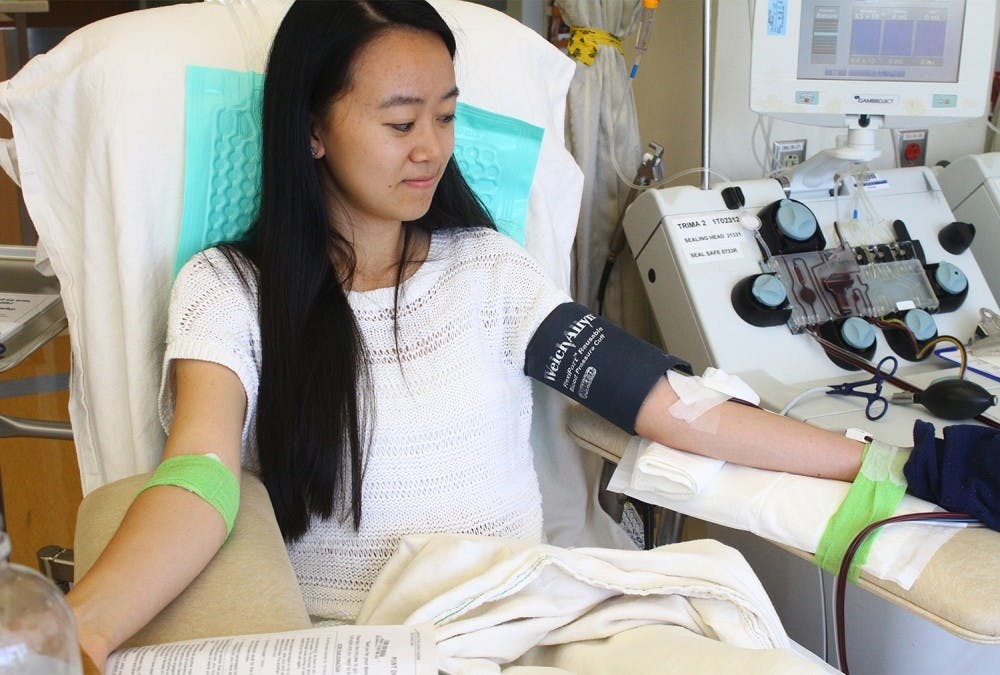Receiving a platelet transfusion in the UNC Health Care system just got safer.
UNC Health Care has started treating the platelets it gives patients with the INTERCEPT Blood System, which reduces the risk of pathogens being passed from a donor’s platelets to a patient receiving a transfusion.
In the United States, incidences of transfusion-transmitted infections are rare, but according to the UNC Health Care Blood Donation Center, risk from bacteria and emerging pathogens still exists. The overall bacterial contamination rate is one in about every 1,500 platelet units, but people affiliated with the UNC Blood Donation Center said the new technology will eradicate any risk of infection.
“With this process we’ve just adapted, we would be able to cut that completely out,” UNC Blood Donation Center Donor Recruiter Trilby Norton said. “It neutralizes all the pathogens, kills everything in there, but obviously keeps the platelets really safe. It’s a way, way safer product for our patients.”
Norton said even before the Blood Donation Center added the INTERCEPT system, receiving a platelet transfusion was not a risky procedure.
“This is just an extra, added step to make sure that they are absolutely perfect to be transfused to our patients,” Norton said. “We’re really taking that extra step to make sure that everybody is safe and doesn’t have exposure to any pathogens.”
The process has been used in Europe for more than a decade, but was only introduced to the U.S. health care system less than three years ago, UNC Blood Donation Center Supervisor Tom Neish said.
He said it took some time to properly introduce the INTERCEPT system to UNC Health Care’s infrastructure, but that UNC adopted it as soon as it could.
“It’s safer for our patients,” Neish said.



